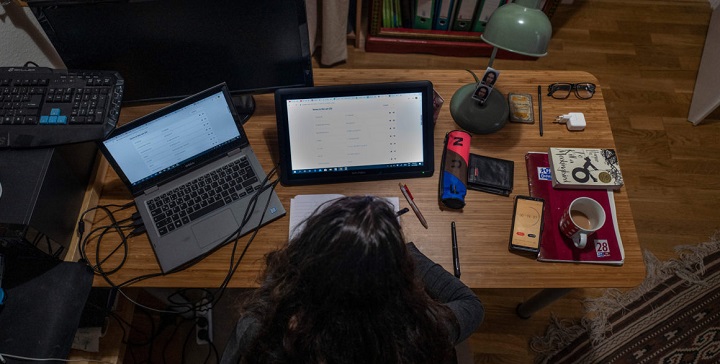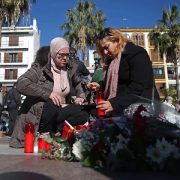
With the pandemic spreading of Covid-19 almost every religious community in the world had to switch its liturgical, pastoral, and spiritual, services from analogical to digital. Some communities/churches were somehow ready for this change, others found themselves surprised and relatively unorganized – not to say of the people used to attend to «traditional» religious services. Above all in the mainline denominations, many of them are elderly and not so much familiar with computers and digital instruments. To make things worse, in this moment they can’t rely upon grandchildren for fast schooling into the digital world.
Poor people and people living in rural areas (with bad Internet connection, if any at all) are becoming day by day the emarginated ones produced by the sliding into the digital of religious institutions that used to take great care of them. Of course, not only Covid-19 is spreading all around the world, but also the creativity of religious communities in dealing with this unprecedented state of affairs for faith, liturgical attendance, and charity work.
Particularly affected nowadays it is the Catholic Church with its sacramental structure. Sacraments need corporeal presence, because they are bodily encounters with God’s grace «materialized» into the matter of our earthly world, made by thick things that one can touch. In this sense, streaming mass online dissolves into nothing the thickness of the Christian God – and therefore it makes sacramental grace inaccessible for the very people who are watching at (and no more attending to) the streamed mass. Although naming it as service to his people in times of emergency, in reality the priest celebrating mass in streaming is just reinforcing clericalism within his own community.
Just for a while, think about the difference between a one man show in front of a camera and the rustic table around which Jesus and his small group of followers gathered together once: touching bread, washing feet, drinking wine. Of course, streaming online the sacramental memory of the last supper would grant a much bigger number of followers; potentially, one can reach everybody if one is ready to give up the disturbing, material thickness of grace and not get knowing with anybody one is celebrating for.
But the very question is what will happen to religious life, communities, services, when it will be possible to make a step backward into the analogical form of gathering, sharing, living together faith? In times of physical distancing «the social element of church participation decreases significantly» (B. Hollar). This social bond is very difficult to be translated into the binary grammar of the digital, which has its rules in configuring the societal according to its own goals (that are financial lucrative as well as exploitive as to the warmth of human proximity).
Social bonds are not immune to the viral pandemic we are living into. They are suffering too. They are experiencing both a too much (within domestic walls) and a too little (in the open of public square): finding a new balance afterward will be not an easy task at all – not only as civil society, but also as religious community too (and perhaps both should work together in shaping a post-viral common life among human beings).
Anyway, successfully digital coping with the Codiv-19 pandemic could reveal itself perilous for religious communities when time will come to reassume step by step some sort of analogical religiosity. We can’t predict how the scenario will look like, but we must be wary of the deep transformations which the time that will come will bring about. We must prepare today for this spectral future. Above all, catholic faith must now, in this time of forced seclusion, steadily hold onto God’s corporeal proximity as well as onto the everyday «materiality» of grace – for «the logos became flesh», and outside of this realm of thick and touchable concreteness Christianity is at loss.





